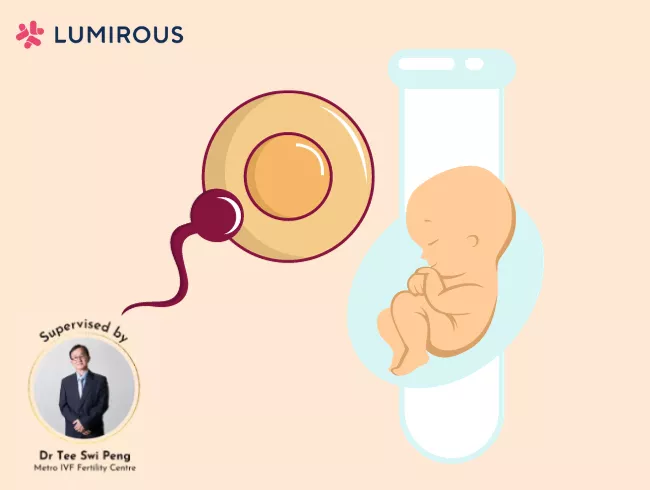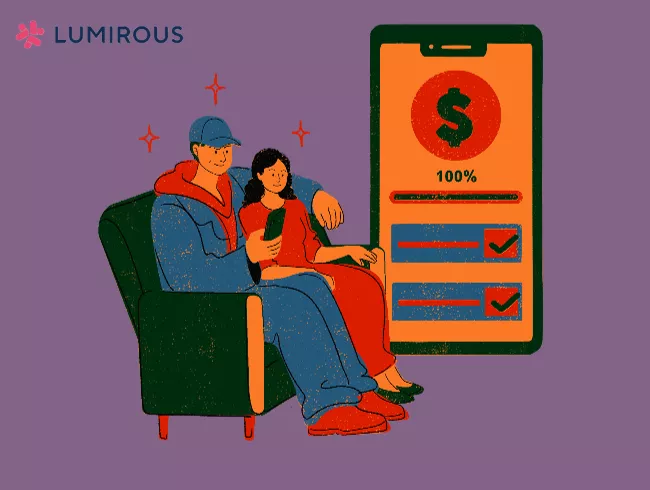 |
Content |
What is IVF? |
In vitro fertilization (IVF) or famously known as test-tube baby is a fertility treatment in which the sperm and the eggs are fertilized inside a test tube under laboratory conditions. Successful fertilization will develop embryo(s), which then be returned to the uterus to grow and develop into a full pregnancy. |
How much does IVF cost in Malaysia? |
|
 |
|
| IVF treatment is a series of complex procedures that are time-consuming. The IVF cost in Malaysia differs according to the cost of medications, laboratory sessions, and extra procedures such as ICSI. The price range for IVF treatment in Malaysia starts from RM15,000 and can exceed RM50,000. This price range applies to both public and private fertility clinics in Malaysia. | |
What is the success rate of IVF treatment? |
The general success rate for IVF treatment is between 19% to 32% for each IVF cycle. Women below the age of 35 will be more likely to have a successful pregnancy that resulted in a live birth. |
Is it safe to do IVF? |
IVF is generally a safe practice for couples who are trying to conceive a child. Most of the couples that have undergone this fertility treatment experience no problems whatsoever with their health and their pregnancy. |
Who is suitable to undergo IVF treatment? |
|||
| IVF might be the most commonly known fertility treatment but it is never the first treatment to be suggested unless the female patient is over the age of 35 and have had unsuccessful attempts with IUI treatment. |
|||
| Women | Men | ||
| Subsequently, IVF will become the main choice for women with ovulation disorders, damaged or blocked fallopian tubes, endometriosis, uterine fibroids, genetic disorders or unexplained infertility. | IVF is recommended when men have problems with sperm production and functionality, genetic disorders or unexplained infertility. | ||
The Process of IVFIVF procedures will be carried out during the ovulation cycle and can be completed within three to five weeks. Below are the step-by-step IVF procedures you can expect during the treatment. |
||||
|
Step 1 - Ovulation Induction |
Step 2 - Egg Retrieval |
Step 3 - Sperm Retrieval |
||
| Medication will be prescribed to stimulate the ovaries in producing multiple eggs. | A transvaginal ultrasound will assist in locating the eggs and a thin needle will pass through your vagina to retrieve the eggs. You will be sedated and given pain medication for this procedure. | Your male partner will have to provide sperm samples usually through masturbation, on the same day as egg retrieval. | ||
| Step 4 - Fertilization | Step 5 - Embryo transfer | |
| The egg and sperm samples will be introduced in a test tube for fertilization under laboratory conditions. This step can take hours before a successful embryo(s) is produced. | This procedure usually takes place a few days after the egg retrieval. The embryo(s) will be placed in a syringe that is attached to a catheter. The catheter is inserted into your uterus to implant the embryo(s). This procedure can cause discomfort, hence mild-sedative and pain medication may be administered. |
When will your period start after egg retrieval? |
|
|
Your menstrual cycle should resume after 10 to 14 days of the procedure. |
What are the medications used in IVF treatment? |
|||||
| Medication plays an essential role throughout your IVF treatment. Hormone medications such as Clomid or Follicle-Stimulating Hormone (FSH) injections may be prescribed. | |||||
| Functions |
|
||||
| Mild Side Effects |
|
| Rare Side Effects | Ovarian hyperstimulation syndrome (OHSS) may occur with signs of shortness of breath, feeling and being sick, feeling faint or pain in your lower stomach. OHSS can be dangerous, immediately contact your doctor when symptoms arise. |
What to prepare before IVF treatment? |
Couples seeking IVF treatment are required to undergo infertility diagnosis to identify the cause of infertility. The diagnosis will also help your doctor to devise the best treatment plan for you and your partner. Another important matter to address is your plan shall there be more than one embryo(s) develop after the fertilization stage. Another baby is certainly a blessing but it significantly increases the risk of complications during the pregnancy. Talk with your partner and consult your doctor on the best plan for you in moving forward. |
What are the things you can do and avoid after IVF treatment? |
||||
| Your daily activities can resume as usual after IVF treatments. However, your doctor may suggest taking it easy and avoiding vigorous exercises like aerobic and heavy lifting. | ||||
| Can you have sexual intercourse after IVF? | Can you have sexual intercourse after getting pregnant? | What alarm signs to look out for after IVF treatment? | ||
| You will be advised to abstain from sexual intercourse for at least two weeks after embryo transfer. | The answer is yes unless your doctor recommended otherwise. Different patients may have different risks during their pregnancy, and it is best to play safe. | Pay attention to symptoms of mild or severe pain like sharp, stabbing pain, vaginal spotting or bleeding, dizziness or fainting, lower back pain or lower blood pressure. Either one or a combination of these symptoms have the possibility of infections, OHSS or ectopic pregnancy. Immediately contact your doctor. | ||
With LUMIROUS, you can book a 15 mins complimentary fertility coaching session and discover the benefits of fertility coaching. To learn more, please visit our website and WhatsApp us now for more!
